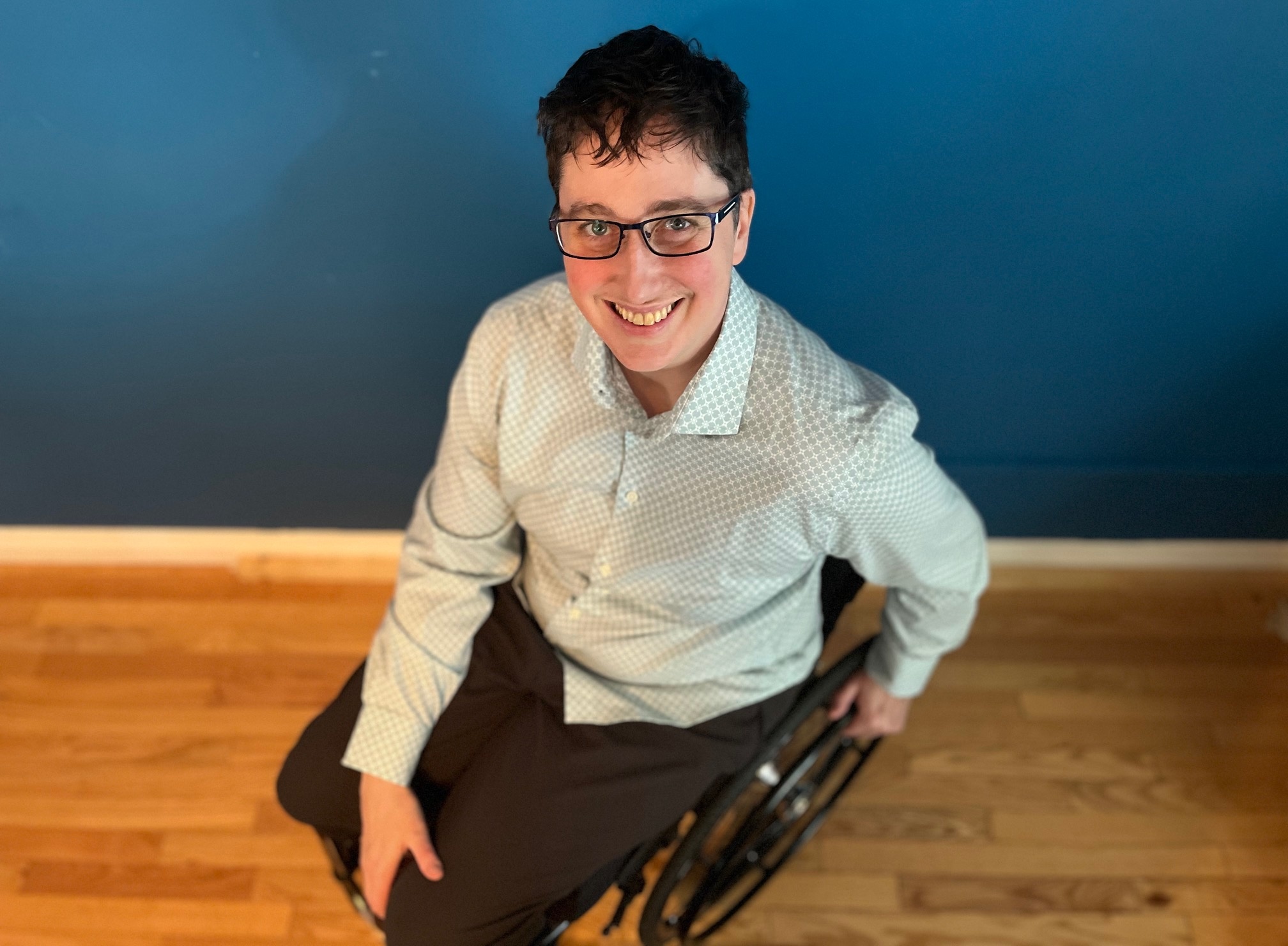Growing up in an athletic family, Danielle Peers fell in love with basketball.
When injuries and persistent muscle imbalances cut their college basketball career short, Peers was recruited to compete in wheelchair basketball, and fell in love with both the community and the sport.
“Wheelchair basketball opened up the world of disability to me in a way that replaced many of the disability stereotypes I had with a more complex and nuanced understanding of disability,” says Peers.
After the muscular imbalances they experienced as a teenager were diagnosed as muscular dystrophy, Peers entered the world of elite parasport.
Peers excelled in the sport, winning a bronze medal at the 2004 Paralympics, a gold medal and tournament MVP at the 2006 Wheelchair Basketball World Championships, and five national championships, as well as a number of international honours. But amid the success there was something Peers began to notice that led them to reframe their perspectives on disability sport.
“I noticed, having played relatively high-level standup basketball, the differences between how we’re treated as para-athletes,” says Peers.
“There was an attitude that it’s such a privilege to be here playing at all, rather than sport being a right. This often undermined calls for accessibility, equity and dignity.”
Further, as one of the first, and only, non-male athletes playing in some of the world’s top men’s wheelchair basketball leagues, Peers was also exposed to gender-based harassment, and noted gender inequities in funding and opportunities. They were also one of very few queer athletes in elite sport across Canada who were out at the time, although they did not feel safe to be out about being non-binary.
Those experiences led Peers to become an activist focusing on creating more inclusive and affirming sport and recreation opportunities for those who live with disabilities, or who are otherwise excluded.

To address some of these barriers, Peers co-founded the Edmonton Inferno, the first women’s wheelchair basketball club in Edmonton. They also co-founded the Solidance Inclusive Recreation Society and worked in dance, video and performance art to remove ableist barriers to grassroots movement and recreation for people who live with disabilities.
Today, Peers balances academic research, activism and advocacy to create more inclusive and accessible sport and recreation spaces and practices — a decades-long impact that will be recognized next month when Peers is inducted into Canada’s Sports Hall of Fame.
“I’m less interested in the podium and much more interested in how we get more people to have access to sport and recreation experiences that are meaningful and affirming,” says Peers.
To that end, Peers’ academic career has been as exemplary as their athletic achievements. They earned prestigious Vanier and Trudeau scholarships during their PhD work at the U of A, then headed to Concordia University as a Banting postdoctoral scholar before returning to the U of A as a faculty member in 2016.
Now, as an associate professor in the Faculty of Kinesiology, Sport, and Recreation, Peers brings “a deeply intersectional and collaborative approach to identifying and transforming the ideas, methods, policies and practices that systemically delimit the opportunities for many folks to participate and flourish in Canada’s sport and recreation programs.”
“If we want to transform our movement cultures, we need to centre the knowledges, methods and ingenuity of historically excluded communities in these processes,” Peers notes. “We need to learn from them, not focus on ‘teaching’ them how to engage in ‘our’ mainstream programs.”
In 2020, Peers was named Canada Research Chair in Disability and Movement Cultures, and led a study showing that online information for athletes with disabilities was lacking on most Canadian athletics websites, creating barriers to inclusion and representation.
Earlier this year, they were appointed as the U of A’s Academic Lead on Equity Praxis and Systemic Ableism, and will co-lead a new advisory council with members from across the university’s diverse communities to address issues of systemic ableism and systemic access.
“I’ve never been someone super interested in the glass ceiling — I’m more interested in who gets into the door and who’s cleaning the glass ceiling, and how to shift the inequitable foundations.”
Of all their accomplishments, Peers is most proud of the teams they’ve been a part of, whether as a wheelchair basketball player or an academic researcher — and they say close collaboration is the name of the game in both cases.
“Wheelchair basketball, I like to say, is a little bit of a mashup between rugby and basketball. There’s a lot of tactical positional work done by five players on the court to even bring someone to move their chairs into a space to score. Transformative research and advocacy are the same — these awards are really a reflection of collective efforts and successes.”
